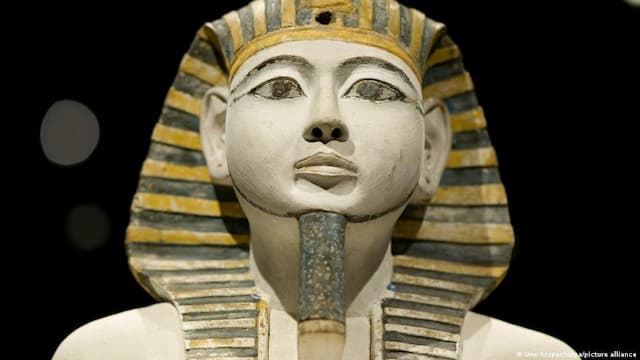Forgiveness of sins (Luke 24:47)
If the gospel isn’t a message about personal guilt, why did Jesus commission his followers to announce “repentance for the forgiveness of sins in his name?”

My friend Tim Healy has responded with a great question. We’ve been emphasizing that the gospel of the kingdom is good news of the restoration of God’s kingship, liberation of the earth through his anointed ruler (Christ, our Lord). Over the last 2000 years, the Western church has veered towards a message about individual guilt. We need to recover the blazingly good news Jesus announced and enacted.
Here’s Tim’s question:
What do you think Jesus meant when he said that the message of repentance for the forgiveness of sins would be preached in his name? (Luke 24:47). What did he mean by “repentance” and “forgiveness” and “sins”?
I suspect that it is this message and the assumed meaning of these elements in it that may have led parts of the church to conclude that the message we preach ought to include the presupposition of “guilt-before-God” on the part of the listener.
Here’s the verse Tim was referring to:
Luke 24:44–48 (ESV)
44 Then he [Jesus] said to them, “These are my words that I spoke to you while I was still with you, that everything written about me in the Law of Moses and the Prophets and the Psalms must be fulfilled.” 45 Then he opened their minds to understand the Scriptures, 46 and said to them, “Thus it is written, that the Christ should suffer and on the third day rise from the dead, 47 and that repentance for the forgiveness of sins should be proclaimed in his name to all nations, beginning from Jerusalem. 48 You are witnesses of these things.
The disciples had just seen Jesus condemned to death by the authorities. “The king of the Jews” was executed for sedition against Caesar. All their hopes of God restoring the world through his anointed had died and been buried with him. He’d turned out to be just one more devastating injustice in Israel’s tragic history: “They crucified him; but we had hoped that he was the one who was going to redeem Israel” (24:20-21).
When Jesus turns up alive again, they can’t believe their eyes. Are they seeing a ghost? They can’t believe he’s physically back from the dead until he consumes some food (24:37-43).
Jesus explains that God was not caught napping when the rulers of this world crucified his anointed. The whole Jewish story has been leading towards this crucial event, for this is how God resolves all of Israel’s struggles at the hands of the nations.
The Torah explains how God established Israel as his representative kingdom. The Former Prophets recount how Israel’s glory days under David and Solomon fell apart as their nation was destroyed by Assyria and Babylon (2 Kings 17, 25). The Latter Prophets deliver the promise that God will yet raise up the nation that has died (e.g. Ezekiel’s valley of dry bones). The Psalms blend two seemingly incompatible truths: laments when Israel’s king is defeated by the nations, and celebration of YHWH’s reign.
So Jesus — the anointed descendant of King David (Messiah) — has entered into the history of his people. Just like them, he has been destroyed at the hands of the nations. And now God has acted to fulfil his promises to Israel: he has raised up his anointed ruler, to reconstitute God’s reign.
Consequently, Jesus death was not just another disaster in Israel’s history. The resurrection of God’s anointed ruler from the dead is the restoration of God’s people. It’s the joyful news that Luke has focused on from the very start (Luke 1:16, 33, 54, 68, 80; 2:25, 32, 34). It’s the restoration of the Davidic kingship, God’s reign on earth (Luke 1:27, 32, 33, 69; 2:11; 4:43, etc).
And now Luke’s Gospel reaches its conclusion with a new twist. Not only does the Messiah restore God’s kingship over Israel; he brings the nations under his kingship as well!
The nations showed no respect for God’s kingship when they invaded the land he had assigned to his people. At times, they even killed God’s anointed king (e.g. Josiah in 2 Kings 23:29), so it’s no surprise when they kill Jesus for the sake of their power. What is astounding is that, when the heavenly sovereign raises up his Messiah out of death to the throne, the Messiah offers amnesty to the nations if they turn from rebellion against divine kingship and recognize his authority.
That’s the background we need to answer Tim’s question: What did Jesus mean by repentance, forgiveness, and sins in Luke 24:47?
- Sins: the actions of the nations against Israel in defiance of God’s sovereign authority, with the ultimate case being what had just happened — their attempt to be rid of God’s anointed ruler (Jesus).
- Repentance: the Messiah whom God has raised up from death to the throne calls the nations to abandon their posture of fighting against God and his anointed, to about-face, to turn to him and recognize his kingship (his “name”).
- Forgiveness: God’s anointed ruler offers amnesty to the nations when they give him their allegiance. This amnesty is their release: he releases them from their failed obligations to him, and he releases them from their enslavement by bringing them under divine kingship.
Jesus’ message is not one of individual guilt. It’s the good news that God is rescuing the earth from oppression and slavery under evil, releasing us from the rebellion against God’s reign. That release comes when we turn and recognize the authority of his anointed ruler.
So what does it look like when Jesus’ followers announce this message? To answer that question we need volume two of Luke’s story, the Acts of the Apostles. The whole book is about how Jesus’ emissaries proclaimed the good news of his kingship in Jerusalem, in the southern kingdom (Judea) and the northern one (Samaria), and then to the nations.
Jesus never commissioned us to make people feel guilty: that was the Pharisees’ ministry. He commissioned us to announce his kingship, to call people to recognize his kingship. In an oppressed world, that’s such good news!
Seeking to understand Jesus in the terms he chose to describe himself: son of man (his identity), and kingdom of God (his mission). Riverview College Dean
View all posts by Allen Browne











